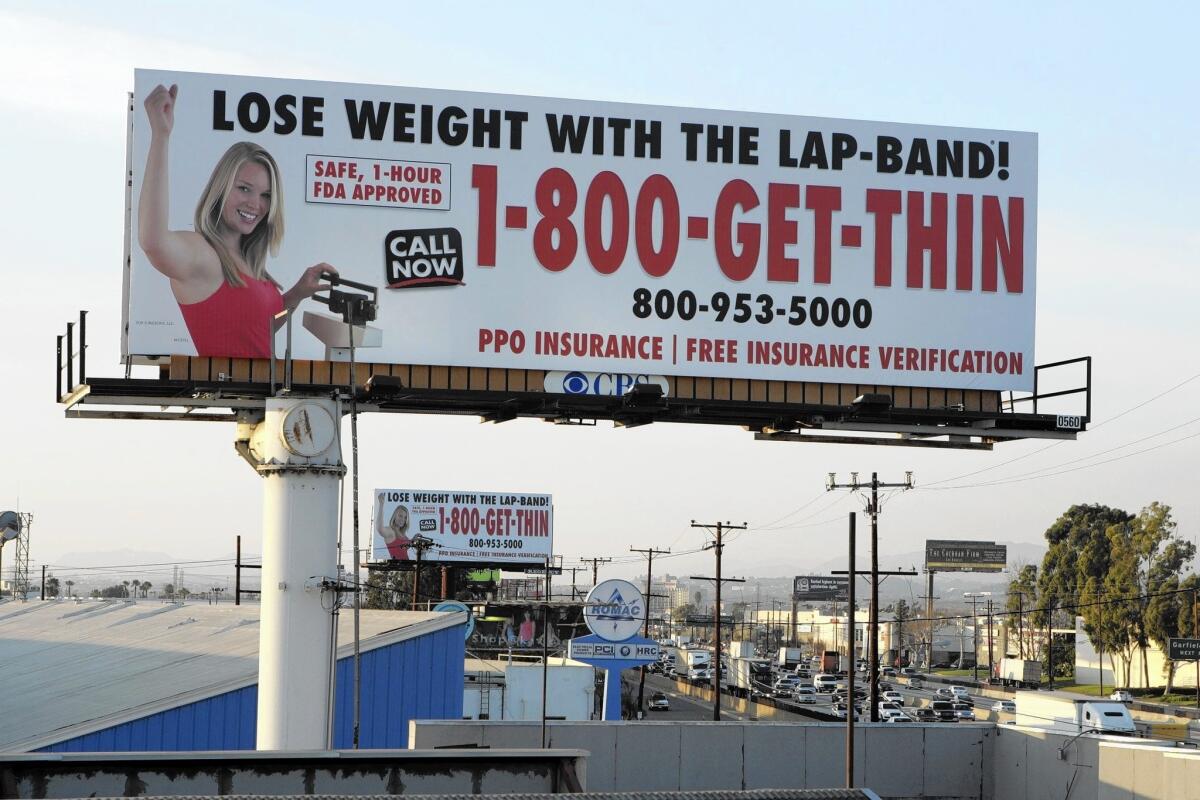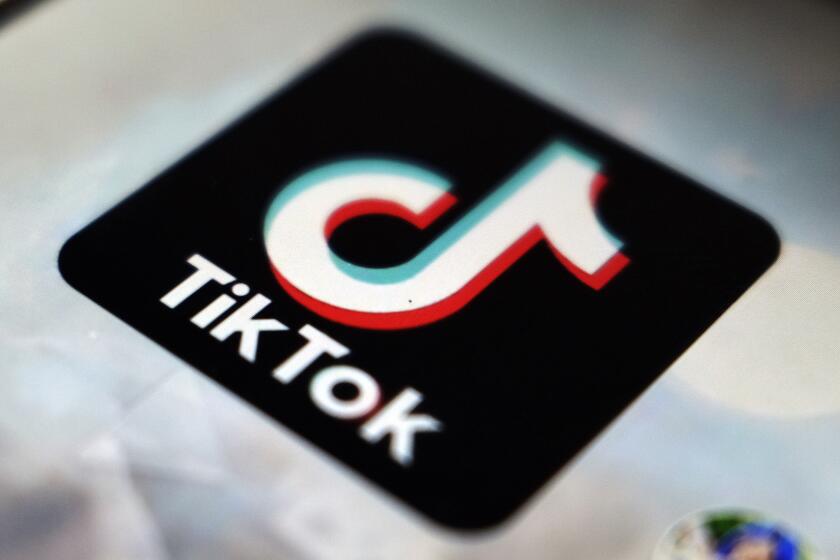Top Surgeons says U.S. took funds it would need to pay GET-THIN settlement

The owners of a company behind the 1-800-GET-THIN ads for weight loss surgery cannot afford to pay a $1.3-million settlement of a false-advertising lawsuit because federal agents seized $109 million from them as part of an ongoing criminal investigation, their lawyer said during a court hearing on Wednesday.
The settlement funds were intended to compensate more than 10,000 people who were billed for medical procedures after responding to 1-800-GET-THIN advertisements. The money also would be used to place billboard ads across Southern California warning the public about the risks of weight-loss surgery.
In 2013, the company, called Top Surgeons, agreed to pay the settlement, but it is still awaiting approval from Los Angeles County Superior Court Judge Kenneth Freeman.
An attorney for Top Surgeons told Freeman that most of the businesses affiliated with the weight-loss business have closed and the company no longer has the means to pay the settlement.
In June 2014, federal agents seized about $109 million in cash and securities from accounts affiliated with Michael and Julian Omidi, who operated the business, and their mother, Cindy.
“There’s no money available to fund the settlement,” attorney Charles Kreindler said. “The government seized $100 million-plus. We haven’t had the ability to go in and get that money.”
The Omidis have argued unsuccessfully in federal court to have the money returned.
Attorneys for the plaintiffs also said they hope the government will release some of the seized funds to cover the settlement. The agreement calls for a total of $500,000 to be paid to patients, $600,000 to the plaintiffs’ lawyers and $100,000 to place freeway billboard ads about the risks of Lap-Band weight-loss surgery. The remaining funds would be used to administer the settlement.
“We’ve proposed to them jointly that they release enough funds to pay the settlement,” said plaintiffs’ attorney Alexander Robertson, after Wednesday’s hearing. “The class members are the true victims here. We think it’s reasonable that the government would agree to release those funds.”
Federal prosecutors were not in court Wednesday, but in court papers defending the seizure they said the money is “traceable to a long-term fraud scheme.” A prosecutor said in court this week in an unrelated case involving Cindy Omidi that a criminal investigation of the 1-800-GET-THIN business is focused on allegations of health insurance fraud.
Thom Mrozek, a spokesman for the U.S. attorney’s office in Los Angeles, said the funds were seized “pursuant to a lawful court order.” He declined to comment on the proposal to use the seized money for the settlement.
The Lap-Band is a silicone ring that is surgically implanted around the stomach to discourage overeating. The surgeries were promoted for several years on Southern California freeway billboards, radio and television.
Thousands of people responded to the ads, lining up for surgeries at clinics affiliated with the ad campaign.
The class-action lawsuit accused Top Surgeons and other companies of false advertising for failing to adequately disclose risks of the surgery.
From 2009 to 2011, five patients died after surgery at clinics affiliated with the ad campaign, according to lawsuits, autopsy reports and other public records. Those deaths have prompted separate wrongful death lawsuits, some of which are pending.
Attorneys for the Omidis have said the number of deaths is not out of line, considering that thousands of surgeries were performed.
Kathryn Trepinski, an attorney who filed a wrongful death lawsuit on behalf of relatives of a woman who died after one of the surgeries, said she hopes the government sets aside some of the seized money to pay other legal settlements.
“I’m pleased the government seized those assets,” she said. “That said, some of these funds need to go to a victims’ compensation fund to compensate class-action members.”
Freeman said he would rule on the settlement as early as Aug. 31. Kreindler said that if the settlement is approved, he would ask the U.S. attorney’s office to release the funds.
twitter: @spfeifer22






